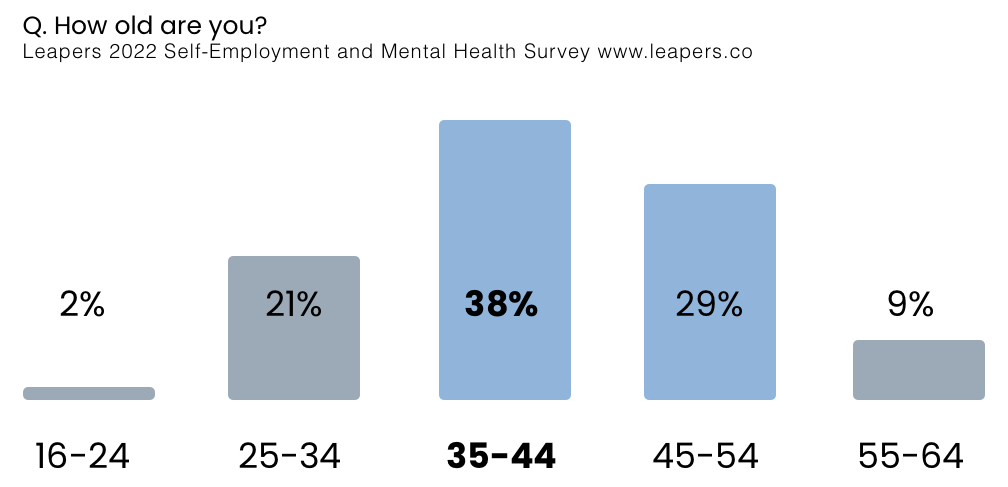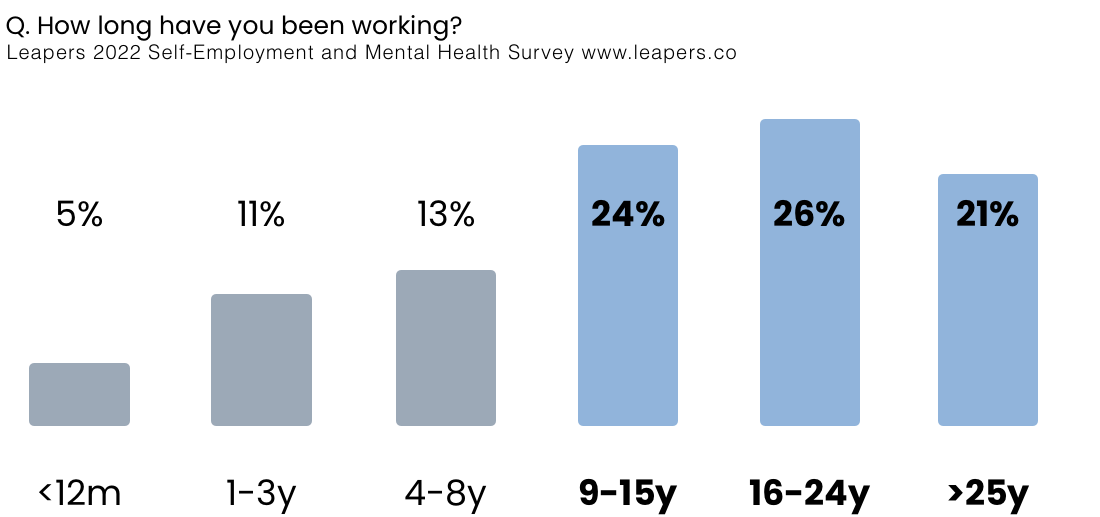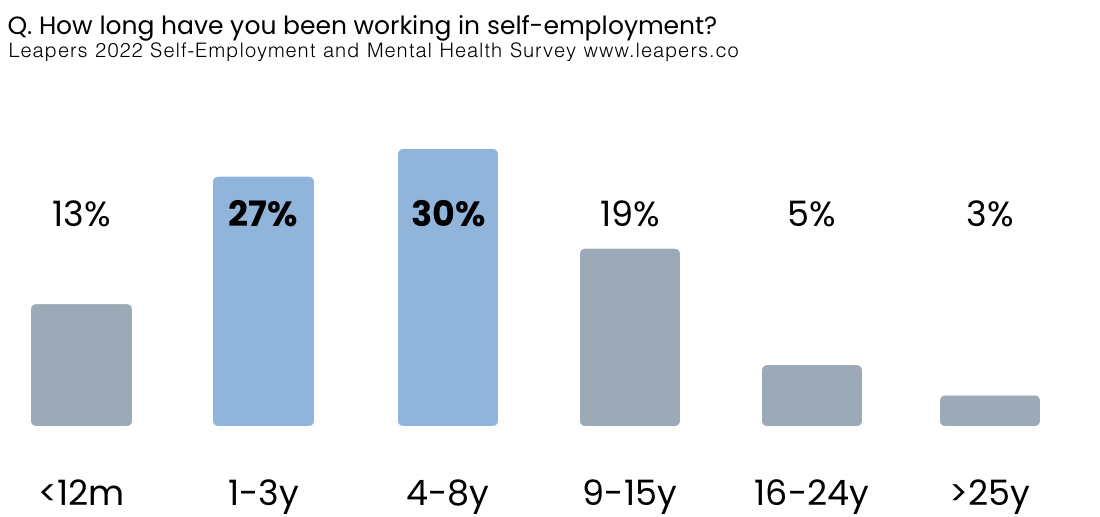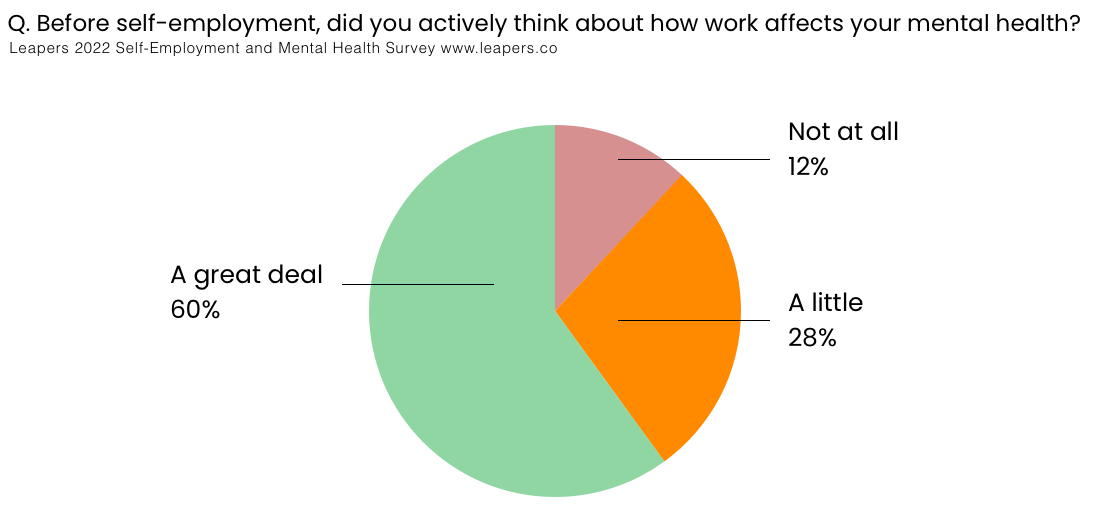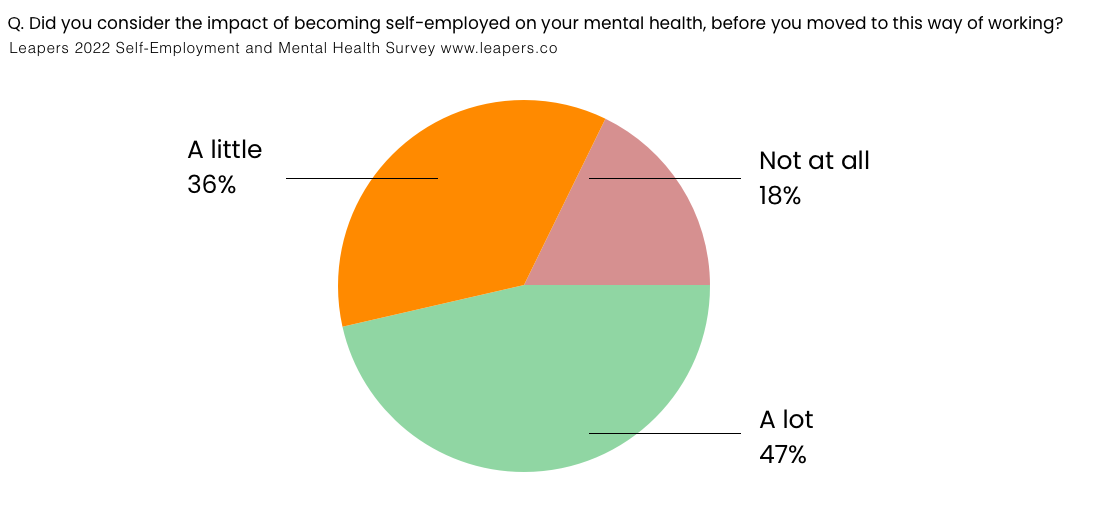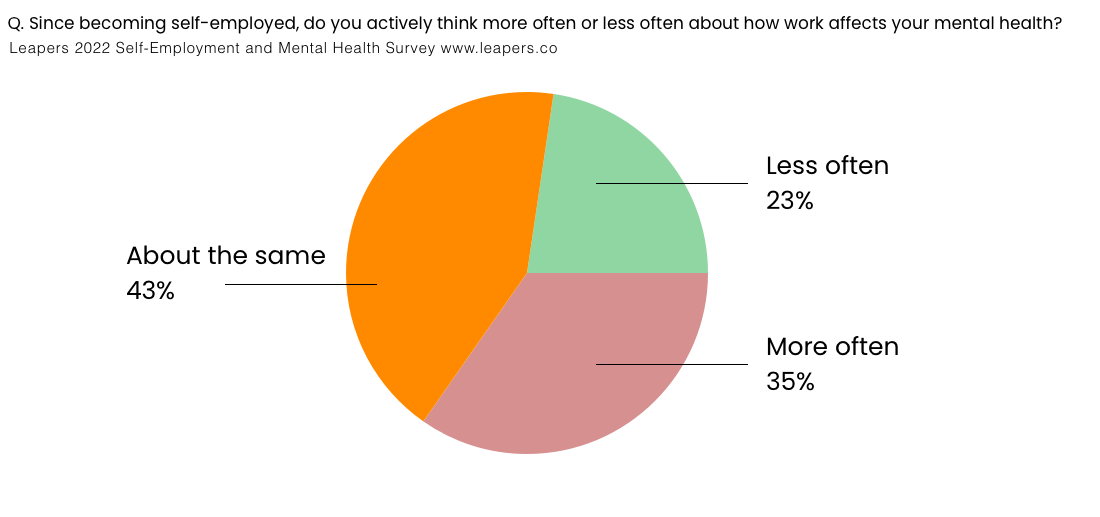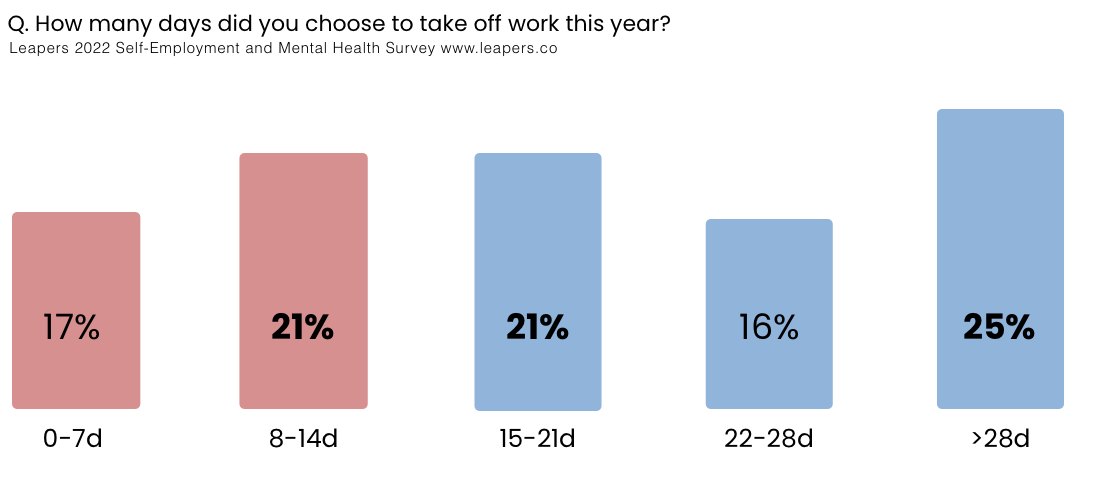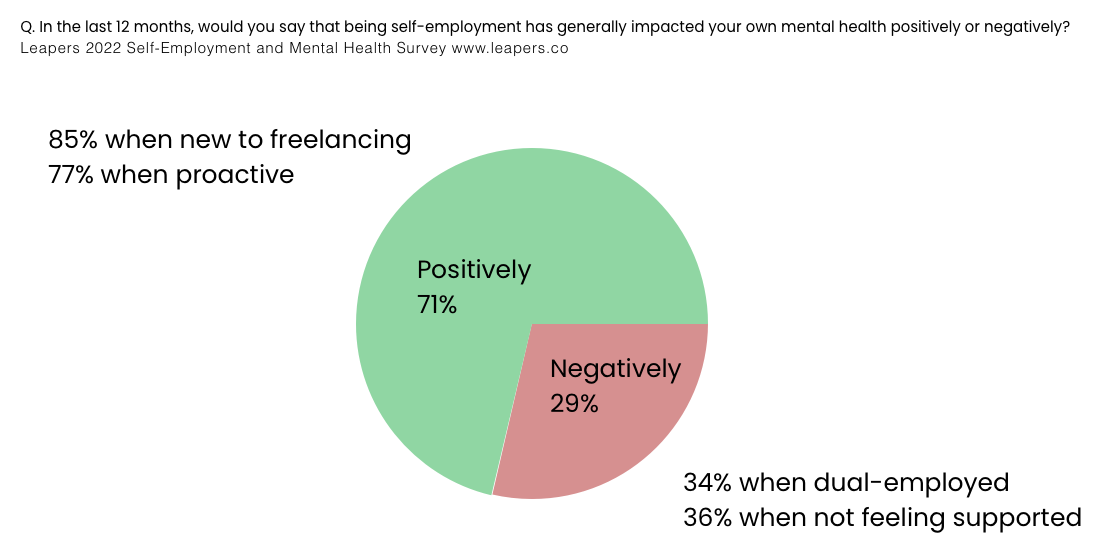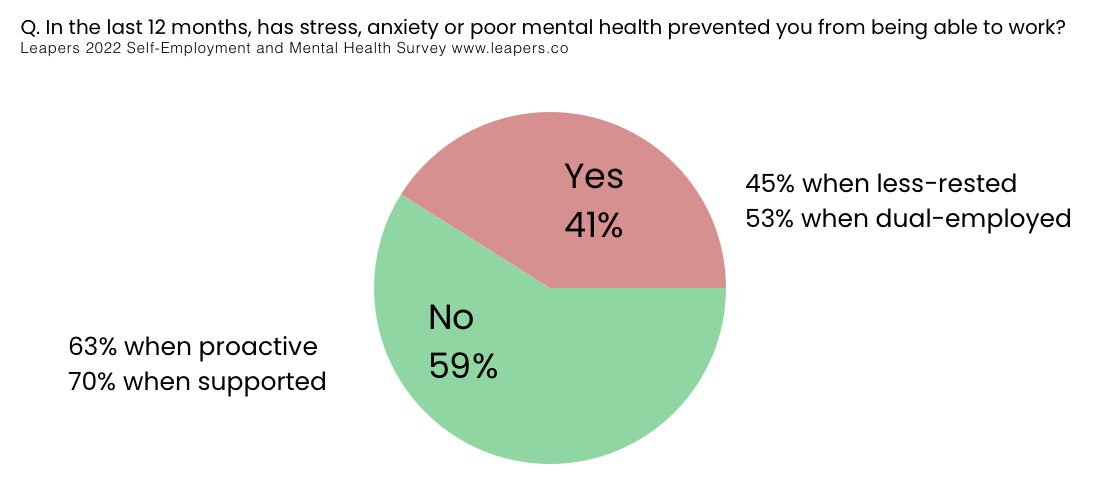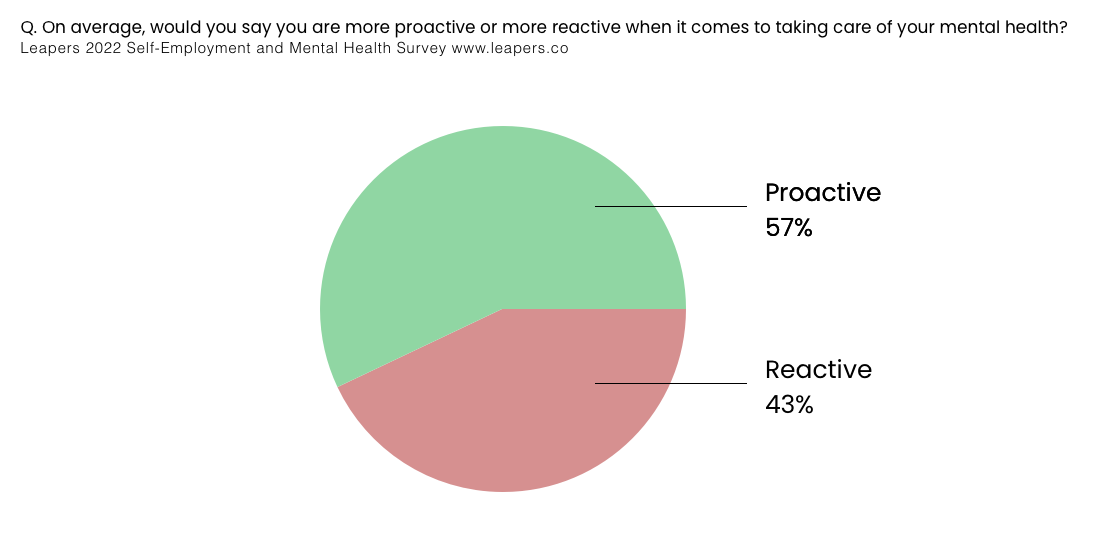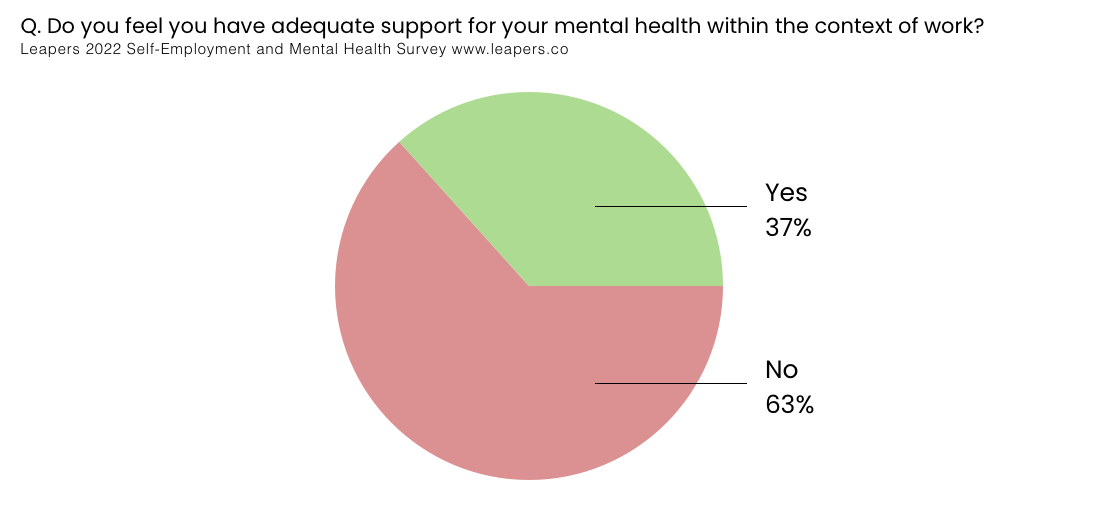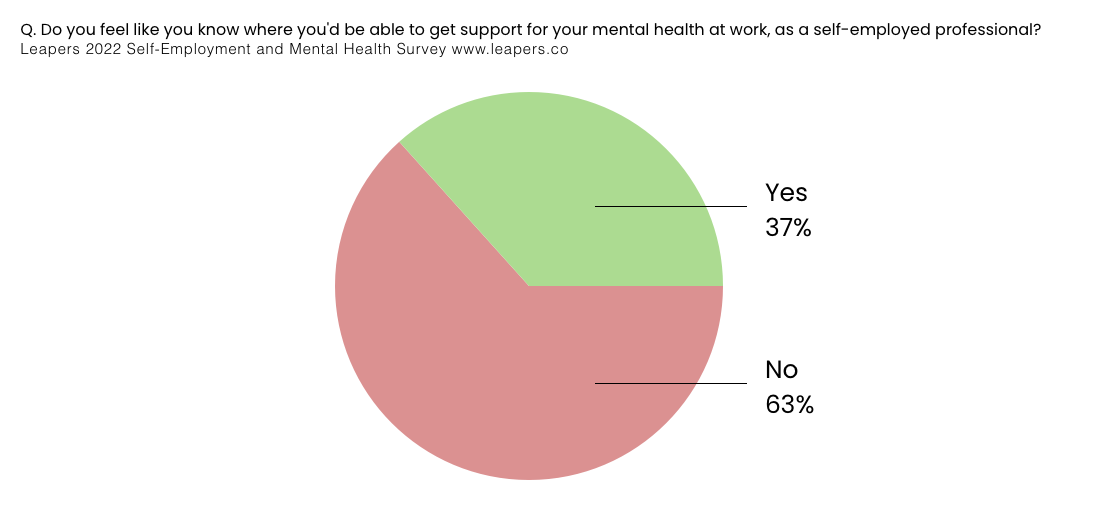The net positives of working in self-employment are clear - people generally report better or improving mental health, and have more autonomy in how they work, leading to positive experiences in the main.
However, simply being self-employed does not lead to a better experience - it takes work to make it work.
Being proactive in taking care of one’s mental health has clear benefits, with improvements in reported positive mental health. Having access to supportive resources and networks also creates an improvement in reported wellbeing. Taking a fair amount of time off and effective rest shows an improvement in positive mental health.
There are a huge range of emotional experiences which the self-employed go through, which would benefit from further investigation and support. Feelings of lack of confidence, lack of experience, lack of focus, lack of direction and progress and lack of productivity are common - and part of the human condition. Indeed, to not feel those things would be arrogant - but to feel those things without having others to connect and talk to about the experience leads to isolation, and working alone can feel incredibly hard. It’s not something you can just ‘solve’, but takes consistent personal investment over time.
Meaningful connections with others who understand the experience of self-employment is consistently a positive driver for improved mental health - and being more aware of the factors which cause you stress or anxiety, so you’re able to understand the impact they have, and then take actions to mitigate their negative impact, is a critical aspect of a successful and sustainable working practice for the self-employed.
Whilst there is an improvement in people actively thinking about their own mental health, there is still a significant gap in access to support or having adequate support though - this speaks to the need of better signposting and improved journeys for those starting a new business, from all of the existing touchpoints for the newly self-employed, such as HMRC, Companies House, business banking and accounting platforms, self-employment communities and service providers. There’s still a great deal that clients could do to better support the freelancers they use, from paying on time to better communication, and there’s still a huge lack of feeling of support from government for small businesses.
This speaks to a lack of a truly supportive and connected ecosystem for the self-employed - there are lots of elements within the ecosystem: services, platforms, communities, networks, government departments, people, but they’re disconnected and the self-employed have to do a great deal of work to find their way and navigate this way of working, often by themselves, until they find the support they’re looking for.
For Leapers, this research reminds us of how important the three pillars of our work are.
1/ Community - creating supportive connections between the self-employed, so people don’t feel isolated and can share experiences. We’ll look into more ways of creating connections, not just within our own community but across multiple platforms and spaces.
2/ Resources - creating and signposting to good quality content on how to maintain and improve positive mental health within self-employment. We’ll look at refreshing our content platform with more content aligned to the key and common issues uncovered in our research this year, and ensure it is distributed more widely.
3/ Partnerships - working with those who work with freelancers to create better behaviours and signpost to good support to close the 63% gap. We’ll look at how we can better enable partners to access both these insights and better support their freelancers.
For more information
If you’d like more detail on this research, please contact [email protected]
If you’d like support as a freelancer, join our community at www.leapers.co/join
If you’d like to better support your freelancers, visit www.leapers.co/freelance-friendly
Please attribute any data used from this report as “Leapers: Mental Health and Self-Employment in 2022” with a link to www.leapers.co/research
Copyright 2023 Leapers / Foxlark Strategy Limited.











